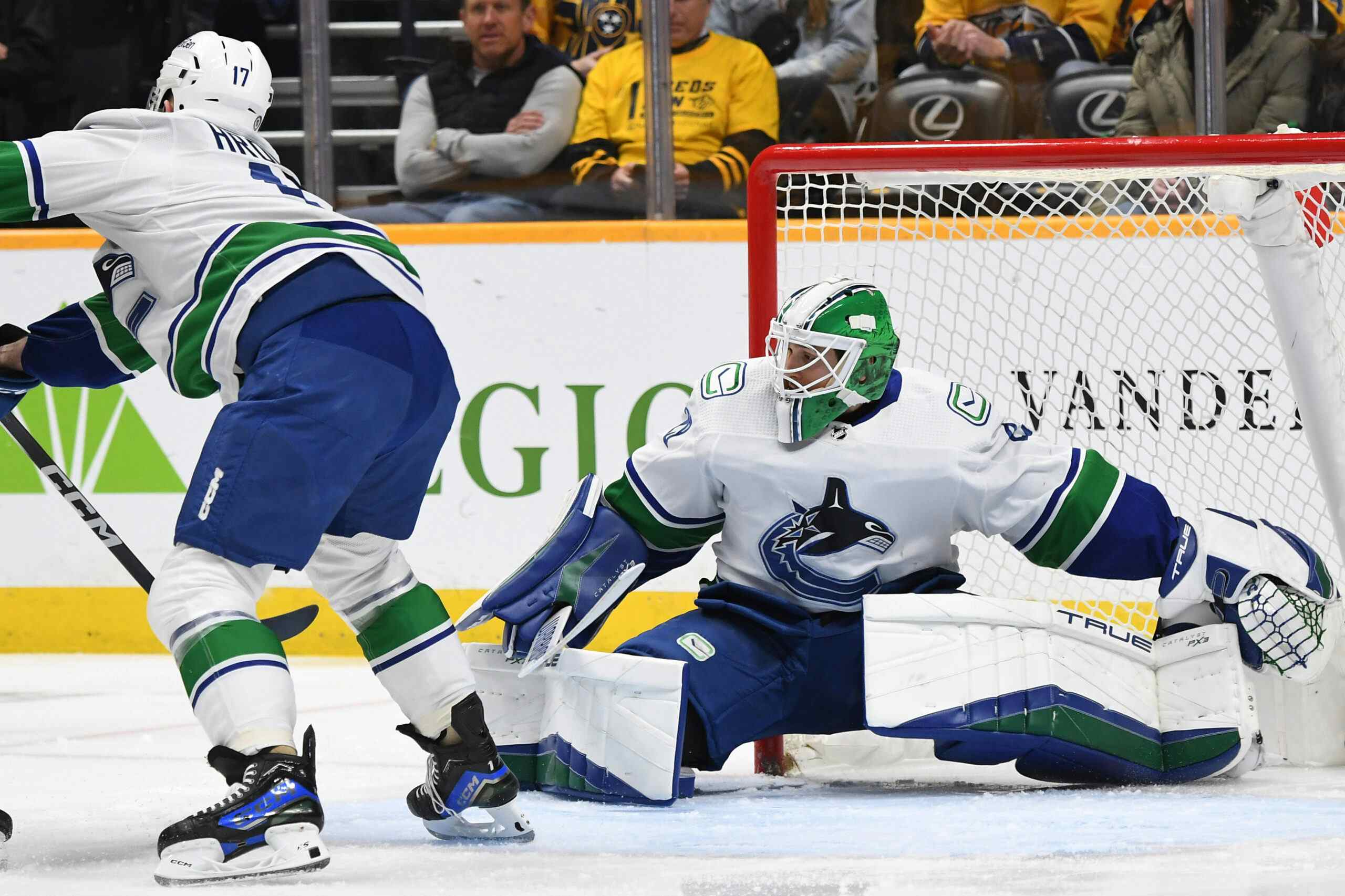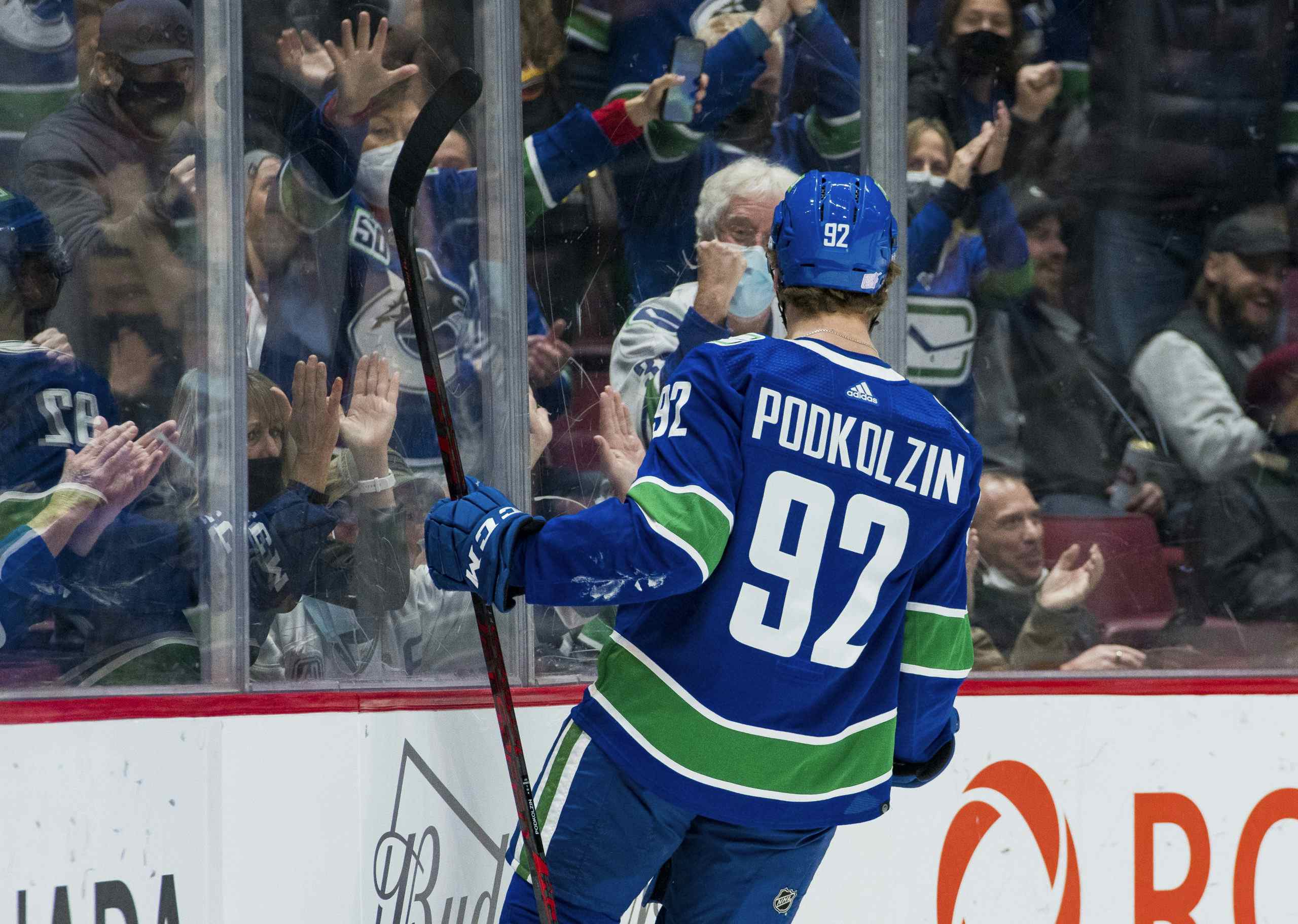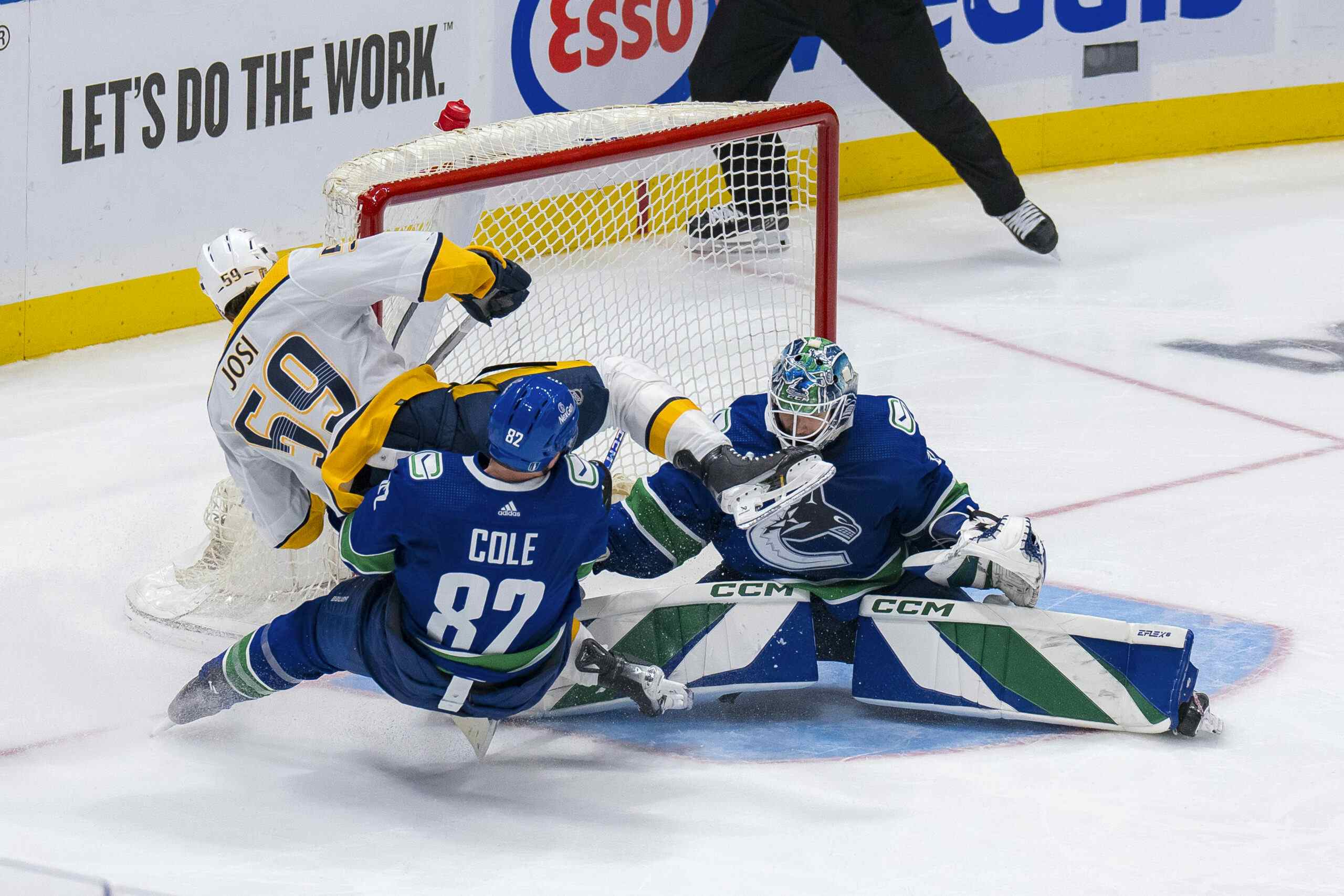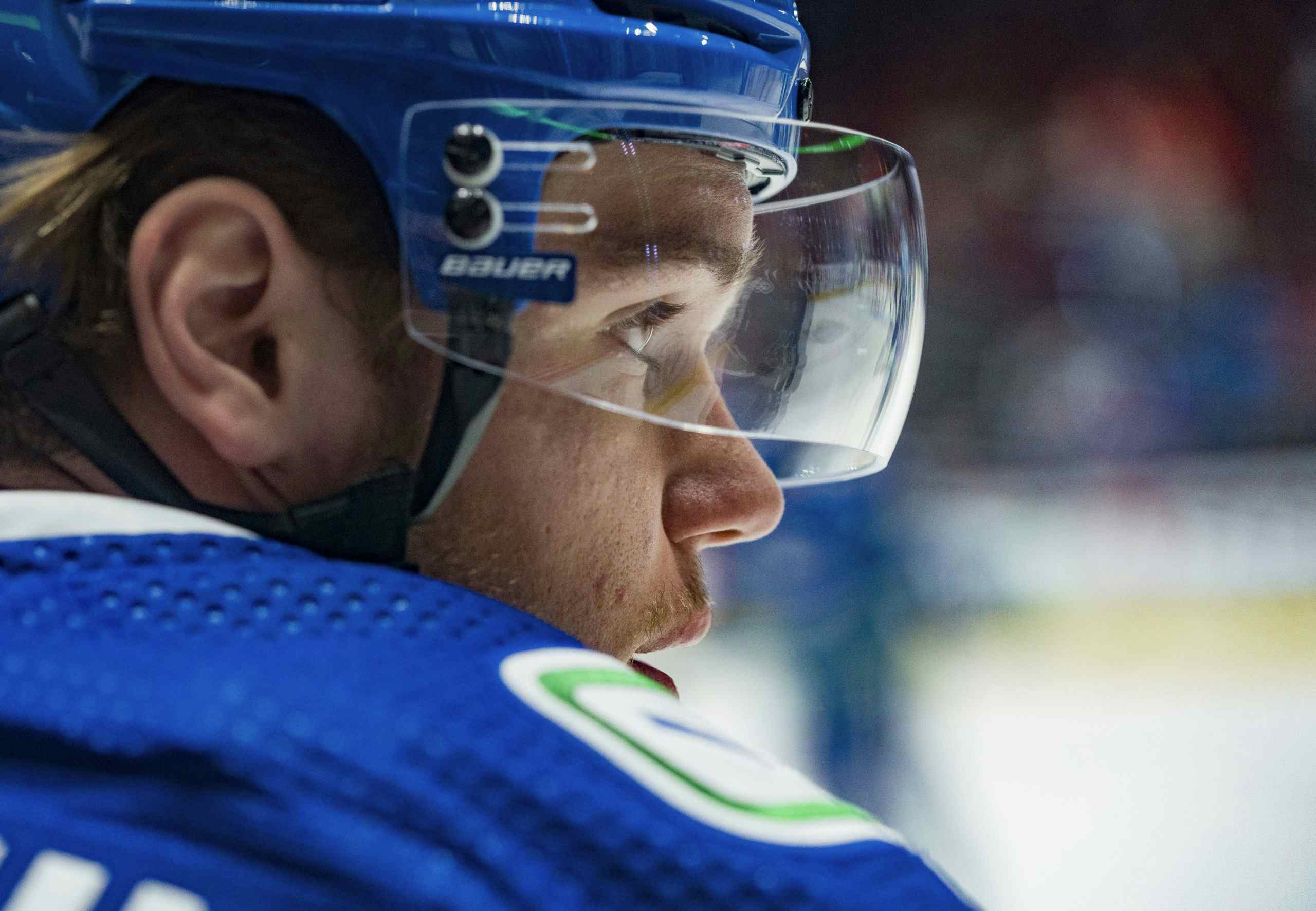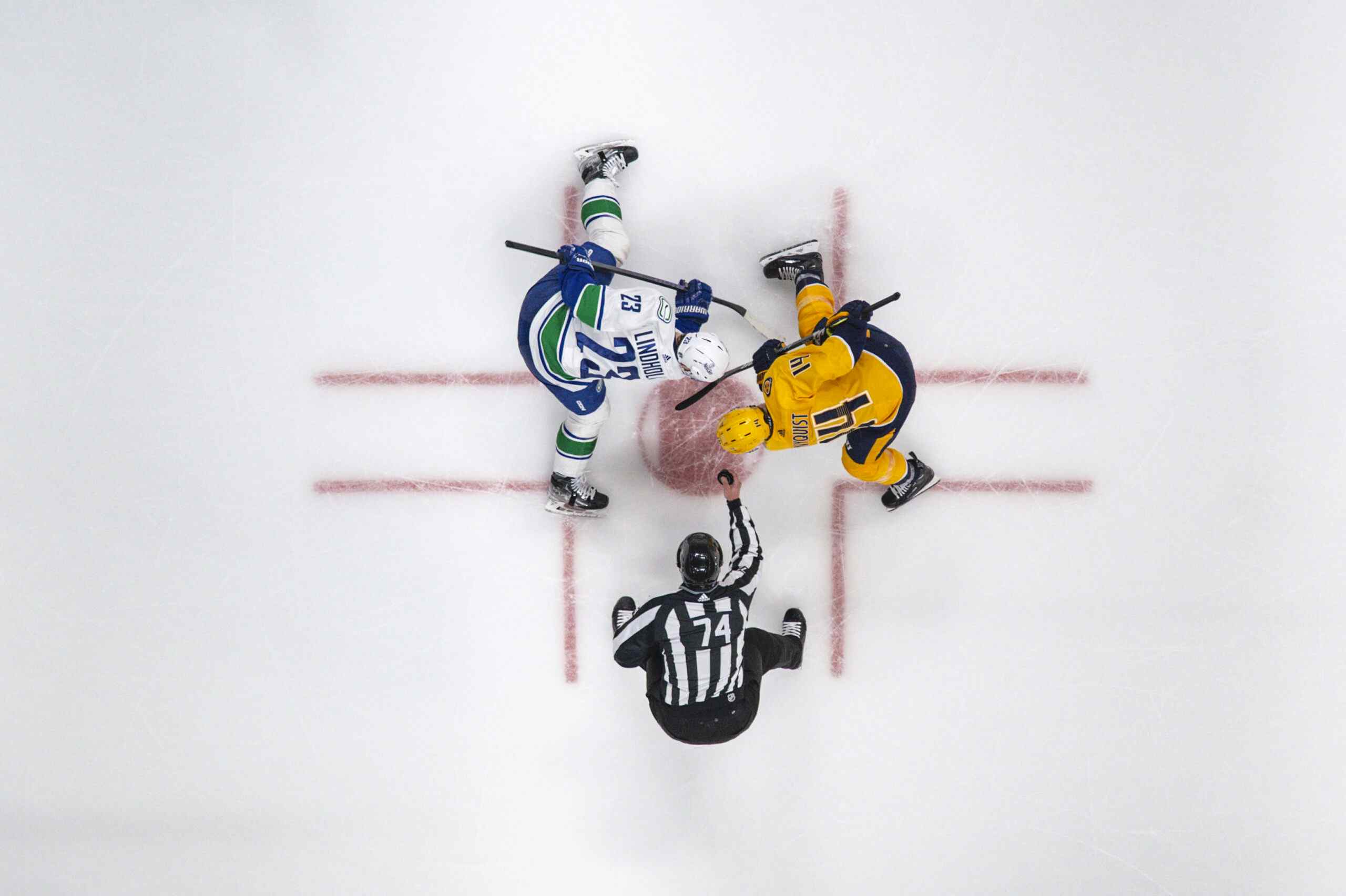Monday Mailbag: The 2020 Draft, Pacific Predictions, and the Oxford English Dictionary

4 years ago
I have to admit, my increased role at CA has meant that there’s far less time to focus on junior hockey, and as a result, I probably know less about the 2020 class at this stage in the game than virtually any other class since I began following the draft obsessively in 2014. With that in mind, all of my observations should come with a massive grain of salt.
Even from just taking a cursory glance at the statistical profiles of the top-ranked prospects for 2020, the claim that it’s an especially deep class appears to pass the sniff test. Based purely on what they’ve been able to achieve at this young point of the season, there’s a group of about 10-12 prospects who would probably be getting top-5 buzz in virtually any year. Alexis Lafrenière and Quinton Byfield have obviously already proven they would be top-2 picks in most draft years; but Lucas Raymond, Cole Perfetti, Tim Stutzle, Jamie Drysdale, Connor Zary, Marco Rossi, Anton Lundell, Alexander Holtz, and Jeremie Poirier have all made a case, at least statistically, that they belong in the top-5 this year, and would likely belong in the top 5 of many other classes, too.
It doesn’t take a genius to point out that, between the fantastic one-two-punch at the top of the draft and the depth through most of the first round, the 2020 class bears a lot of similarity to 2015. I don’t think it’s quite that good, but it’s close.
As far as how it compares to 2021, that’s a more difficult question. It appears uniquely impressive, but based on the general observations and inferences one can make from taking a look at the high-end of next year’s crop of prospects, I can’t say that the 2020 class is so strong that a pick in the 10-20 range will be stronger than a pick in the top 10 of the 2021 class. Ultimately, I think I would generally lean towards having the maximum number of players at your disposal, regardless of year, especially if I trust my scouting department. The 2020 class is certainly strong enough to make me question that, though.
To play in the NHL playoffs, a player must be on the 50-man NHL roster by the trade deadline. So no, they wouldn’t be able to sign a contract for the length of the playoffs. The latest they would be able to sign to come out of retirement is late February, like Mike Fisher did in 2018.
Despite what some fans might say, I think this is a reasonable question. I can’t stress this enough, but the last time the Canucks had anything resembling a decent roster under Jim Benning and John Weisbrod, they basically completely dismantled it by losing a number of trades designed to keep them competitive. You are not wrong to be concerned about the possibility of that happening again.
That having been said, much has changed since the last time the team was in this position. They have a young core that’s on the rise, a more experienced management team, and a better coach. They also no longer have Trevor Linden in their front office, which may or may not be a good thing. Maybe they’ve learned from their past mistakes, and can use the experience they’ve gained to build this team into a contender. I’m very skeptical as to the likelihood of that happening, but it’s certainly possible.
At the end of the day, I would say that any team with Elias Pettersson and Quinn Hughes on it is worth caring about. There are still a lot of hurdles on the way to contention, and I’m not convinced the front office is equipped to handle them, but they’ve been a lot of fun to watch so far this year. When you consider how bad the team has been for most of the past 6 years, that’s a major improvement.
I believe CanucksNation .com and .ca are both registered to the Canucks, which necessitated a deviation from the naming conventions of the other sites. I like the difference, to be honest. I think CA has been somewhat unique from the other nation sites, and the different name helps to maintain that distance.
To be honest, the Pacific Division in general has so many question marks surrounding it right now, and this rating scale is so dramatic that I feel like I’m doomed to fail at this endeavour.
To illustrate how wacky the Pacific appears to be at the moment, the Los Angeles Kings currently lead the division in both shot-share and expected goal share, but one needs only to take a look at their roster and position in the standings to scoff at the idea that they could be a playoff team. By the same token, the Edmonton Oilers and Arizona Coyotes have been middling-to-bad in each category, but currently sit atop the standings. Then there are teams like Calgary and San Jose, who look strong by one metric, but weak in another.
And then there’s the Canucks, of course, who are… middling, in both categories, but buoyed mostly by a strong start to the season.
So, I offer these rankings with absolutely no confidence whatsoever, under the assumption that Arizona and Edmonton are paper tigers, and that San Jose and Calgary are better than they appear. That’s what the numbers say, and I’ve never been one to trust the standings in December, anyway.
(I should also mention that, due to the dramatic nature of the ranking scale, I don’t think any current NHL team would warrant a 1 or a 10, and frankly would struggle to deserve even a 2 or 9.)
VGK- 8
SJ/CGY – 6
EDM/VAN/ARI – 5
LA – 4
I can assume from this question that you don’t really have any idea what a managing editor does, so I’ll just provide a brief explainer. (I actually welcome the opportunity, since there seems to be a lot of confusion.)
In a broad sense, the managing editor’s job is to oversee and coordinate a publication’s editorial content. In most cases, that means setting and enforcing deadlines, deciding what stories get covered, and helping the editorial staff hone the content they create to be more interesting/engaging/relevant.
For a larger publication with a bigger budget, it would also involve enforcing policies set by the editor-in-chief, but CA has no editor-in-chief. For all intents and purposes, the roles of editor-in-chief, managing editor, and copy editor are rolled into one here at CA.
It is not my job to design the site, moderate comments, run social media (aside from the occasional post or RT), or deal with ads. That’s handled by the tech/business side.
I don’t particularly care for ads, either, but as the business currently operates, they are what allows you to read the content for free. Without ads, there would be no budget, and no content.
While I can’t speak to your experiences, for the most part, I’ve heard good things about the user experience ever since the comment section was revamped. If you beg to differ, I can pass any specific grievances on to the tech department.
I mean, the most fun answer has to be Edmonton, right? We were all robbed of the opportunity to see what McDavid/Hall/Draisaitl/Nugent-Hopkins could do with more experience under Connor’s belt, and I for one would like a do-over. It’s probably hopelessly unrealistic, but for now, I will dare to dream.
I think at this stage, it’s fair to assume that the inaction from the front office on the Eriksson situation stems from a desire to make the best of a bad situation. It already looks bad, and sending him down to the minors just makes it look worse, and reminds casual fans of what a disaster that contract has been. For the time being, I think the Canucks are taking an “out of sight, out of mind” approach.
I think you have to do whatever it takes to improve your team, and sometimes that involves taking the “L” on the public relations side of things. Ultimately, if a player is more worried about how a team is going to treat him if he falls off than what he can do to help that team succeed, you probably don’t want to back up the Brinks truck, anyway.
From the Oxford English Dictionary:
me·di·o·cre
/ˌmēdēˈōkər/
adjective
of only moderate quality; not very good.
In the context of the piece I wrote, I was intending it to be received as the former definition, in contrast to “good” or “bad”, although I suppose the second definition stands as well. The Canucks are not very good, certainly in comparison to the NHL’s strongest teams. They are of moderate quality. This claim is easily backed up by their position in the standings, and their contrasting performances in October and November. Whether or not they improve remains to be seen.

